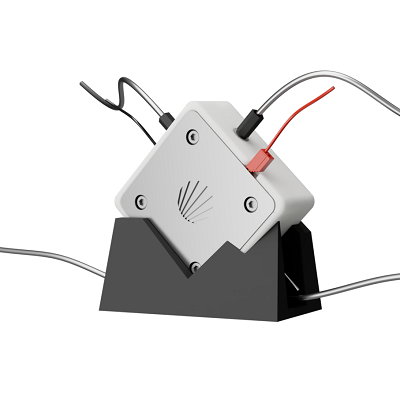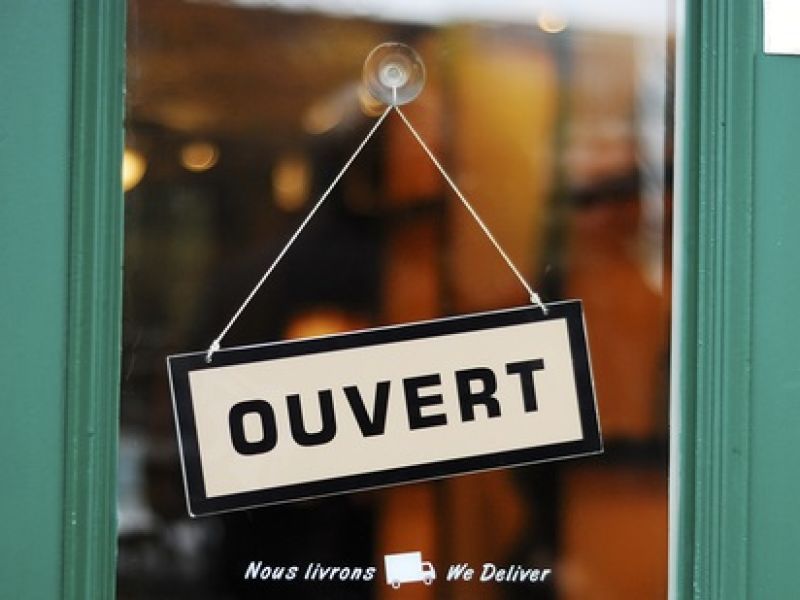A dynamic team of young scientists who won the Euro Start Entreprises startup competition back in 2016 are going from strength to strength with their new company and new products to help solve the world’s energy storage problem.
We caught up with the team – Lukas Lutz, Luca Scherrer and Daniel Corte - to find out the latest news on their exciting research and the lessons they’ve learned in the years since Euro Start helped them to open their science startup Sphere, including advice for young scientists on how to boost their chances of success.
Euro Start: What are the biggest changes that's happened with your company since you won the competition?
Sphere: The last year was a great step forward for us. We registered our company in Paris, filed three patents, commercialized four products (including our Sphere ASC product, pictured) set legal processes like CE marking, and most importantly achieved a significant amount of revenue.
All this would not have been possible without the great ecosystem of supporters we had. Euro Start Entreprises was a great help in the legal foundation of the company. For this sensitive topic you need a partner whom you fully trust, and Jean-Baptiste Puyraud (director of Euro Start) and his team were exactly that to us.
But we also had great support from the European Union, where the Climate KIC grant was funding large parts of our product development. And not forgetting our angel investor, Marc Comer, who is always a good sparring partner in tough moments. This mix of financial support and honest advice was crucial for our growth.
You have a new product - the Flow Cell - can you tell us about that?
Our motto at Sphere is: “You (our clients) focus on science and let us take care of the engineering”. In other words, we want to deliver the equipment to our academic and industrial customers so that they can do their jobs and create the best energy materials this world needs so desperately.
In this sense, the field of energy materials is much broader than only battery research – which is the energy storage side of things. For us storage is one important factor, the other is energy conversion via catalysis. The Flow Cell or FLC (pictured) is a product that has its home in both fields, and we are very proud of that.
The FLC can be used for energy storage experiments, for example for redox-flow batteries and membrane research; for energy conversion materials such as hydrogen production but also for research on catalysts that do artificial photosynthesis or take CO2 out of the atmosphere and reduce it into hydrocarbons – so-called synthetic fuels. So it’s quite a versatile setup.
Our biggest achievement here is to be part of an ambitious project between Total and ArcelorMittal. A big thank you here to our supporter Professor Fontecave from the College de France whose group was a great help during this development process. The aim is to convert the CO2 emissions of one of Europe’s most polluting factories, into hydrocarbons. Sphere's FLC is the key equipment in this project. And our FLC was even featured for a few seconds on French TV!
Tell us about the people who are championing your products such as investors, mentors and clients.
We are very proud to have a diverse mix of clients and a continuous strong demand from both the academic and industrial side of energy research. Our clients range from large international battery manufacturers to small academic laboratories, where young researchers are starting off their career. We are happy to help both sides of the value chain with our products. Our goal is to finally create a standard – away from individually home built setups – to speed up the process from fundamental R&D to commercial, high scale production.
You have also won other startup competitions - can you tell us more about them? How does winning competitions help startups? Is it a good idea for new startups - especially research startups - to enter competitions?
For us startup competitions were crucial. Without the financial support it is just impossible to do stuff – especially developing hardware. And investors can be quite destructive, especially when you are in the early stages. Having a profit-oriented party on your back can often lead to wrong decision making. We consciously decided against an early stage investor and fully focused on competitions and grants. We were lucky and won a few of them and invested the price money directly into the product development. On the other hand, we won two big innovation grants from the European Union that helped us with substantial funding to survive the cost-heavy development phase. We think that grants are a great vehicle to help young startups with their first steps until they finally mature to a level where they are ready for equity investors.
Has going into business with friends affected your relationships with each other at all?
We can’t say it hasn’t, but not in a negative way. Of course, you talk much more business than having conversations about other topics. On the other hand, you spend much more time together and grow closer. Despite our very different characters and nationalities (German, Swiss and Brazilian), we share a similar mindset. In all the challenges we’ve faced so far, we have come to a unanimous decision in the end - intense discussions of course are part of the process. We trust each other 100% and everyone knows where the strengths of the other one lies. This has evolved over the years and is helping us to overcome difficult moments.
What has been the biggest hurdles you've come across in the first couple of years of business?
There were quite a few! Starting with product development, doing sales, visiting clients and dealing with legal regulations at the same time is a big challenge every day. How and where to prioritize is a constant question – especially with such a small team! But there is also a more emotional component to it. As a young startup you often reach a point where you question or doubt your decisions and actions. For us it is really the deep friendship and the common goal amongst the co-founders that lets us overcome these moments. But often, after we have overcome a difficult time we feel the momentum coming back. It’s really a roller-coaster of feelings and a good school for life.
Would you do anything differently if you could?
Maybe moving out from the lab a little earlier would have been good.
Have your ideas for the future of your products and your company changed at all? What is your mission now?
In a way they change over time but the mission is still the same – we want to accelerate the development of new energy storage and conversion materials. What has changed over the years is what we can offer - we grew our product portfolio, evolved our products and added things like consulting and workshops.
Who are your biggest influences in science, business or the environmental community?
The world of energy science is small - everyone knows everyone. Therefore, a long-term relationship with our customers and these networks is important. Word of mouth and recommendations are as important as scientific publications where our products are listed. Of course, what helps are influencers like Professor Fontecave – a well renowned professor in the field of catalysis - and Professor Tarascon who hosted us in his laboratories.
What has been your happiest moments as a startup?
That’s actually something research and startup life have in common – moments of real joy and happiness are rare. But, when they are there, you enjoy them even more intensely. To mention just a few: seeing the first product in action, customers saying “thank you” and of course our annual Christmas Party with our team!
For over 10 years, Euro Start has helped thousands of startups like Sphere create and expand their business in more than 30 countries worldwide. If you need more information on company and branch formation, registering a business address, opening a bank account, tax advice or help in finding a chartered accountant, please click on the links, and either call us directly on 0033 (0)1 53 57 49 10 or email us from our contact page. We also offer free in-depth guides which you can download below.







